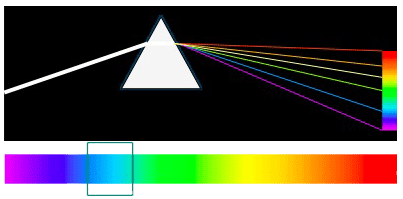Why is light so important to you?
Importance of light
We need light for vision, but light also plays an important role in regulating our sleep-wake rhythm, how we feel and how well we are able to work with our brain.
Read more
Light keeps us in tune with nature
Light during the day and darkness during the night is supporting a good night of sleep and a day full of energy. Most people recognize they feel much more energetic during a bright, sunny, day and often enjoy a sound sleep afterwards. Dark, gloomy days, especially in winter may induce feelings of lethargy, low spirit and sleepiness.
Light makes us feel active
Bright light entering our eyes is increasing our alertness, and decreasing sleepiness, and makes us feel more energetic.

Light via eyes
Light is needed for vision, but light entering eyes also has other non-image forming effects. It is the main Zeitgeber for the biological clock in our brain and it has acute effects on our body and on levels of energy and mood.
Right light at the right time of day
Some of the non-image forming effects of light exposure depend on the colour of light in combination with timing of exposure. Some colours and intensities that are beneficial at one time of day may be detrimental at other times of day.
Light and waking up
In nature, daily life is innitiated by the upcoming Sun, and comes to rest after the Sunset. Modern society respects different daily schedules, we often need to get up before the sunrise, and continue activities till long after the sunset.
Sleep patterns
In modern society we have the capability to prolong the light part of the day by using artificial lighting. Our bodies are not synchronized to the rhythm of the Sun, but to our lifestyle.

Importance of light
We need light for vision, but light also plays an important role in regulating our sleep-wake rhythm, how we feel and how well we are able to work with our brain. Light exposure through our eyes also has a clear effect on our body:
To keep the 24-hour rhythms in our body in synch with the natural environment, we need light at particular times of the day and darkness at other times. Light in the morning induces our rhythms to shift to an earlier phase, light in the evening shifts our rhythms to a later phase.
It is in particular the blue part of the light spectrum that is important for all these "non-image forming" responses.
Light keeps us in tune with nature
Light during the day and darkness during the night is supporting a good night of sleep and a day full of energy. Most people recognize they feel much more energetic during a bright, sunny, day and often enjoy a sound sleep afterwards. Dark, gloomy days, especially in winter may induce feelings of lethargy, low spirit and sleepiness. The reason why some people experience mild changes in energy levels, sleep need, and mood in winter, and others do not, is not really known. Whether it actually is the lack of light that is causing the symptoms is also unclear. What is known is that light exposure through the eyes, either by the sun or by an artificial light source, is able to counteract reduced feelings of well being. In people experiencing seasonal changes, bright light during the short winter days, and in particular during the morning hours, may fight the low energy levels and improve mood. Already 30 minutes of light is capable of increasing subjective energy levels. If one recognizes the annual pattern in feelings of fatigue, increased sleep need and mild mood disturbances in winter, it seems optimal to start exposure to 20-30 minutes of bright light in the morning around breakfast time, as soon as the first signs in autumn appear.
Light makes us feel active
Bright light entering our eyes is increasing our alertness, and decreasing sleepiness, and makes us feel more energetic.
This is so during the day and during the night. In the morning, when the eyes are still adapted to darkness, relatively moderate intensity of light, such as the one of Wake-up Light can be sufficient to activate the body and reduce sleepiness. During the day one needs to seek much brighter light to increase alertness, such as light provided by Philips EnergyLight devices, or of the bright sunny day.

Light and waking up
In nature, daily life is innitiated by the upcoming Sun, and comes to rest after the Sunset. Modern society respects different daily schedules, we often need to get up before the sunrise, and continue activities till long after the sunset. These natural gradual changes from dark to light and back to dark are, however, important cues for our bodies optimal functioning and for our sense of well-being. Philips Wake-up Light brings the essence of the natural sunrise to your bedroom: the gradual increase of light intensity before awakening is gently preparing the body for waking up, resulting in a more energized feeling and natural, easy rising. The overall sense of well-being is positively influenced by light and morning mood is improved.
Sleep patterns
In modern society we have the capability to prolong the light part of the day by using artificial lighting. Our bodies are not synchronized to the rhythm of the Sun, but to our lifestyle.
Many people are extending their daily activities towards the evening, delaying their bedtime and, in case of work or school obligations on the next day, shortening their sleep. Insufficient rest has impact on daily functioning, and often it is only in the weekend when one tries to compensate for the sleep depth. Reducing the amount of light during the last few hours before bedtime and exposure to bright light in the early morning hours can support timely sleep start and more alertness and energy already at the start of the day. By maintaining a regular lifestyle with low variation of sleep times, sufficient light exposure during the day, low light exposure during the evening and darkness during the night, one can achieve a good balance between rest and activity and reduce a variety of health risks.







